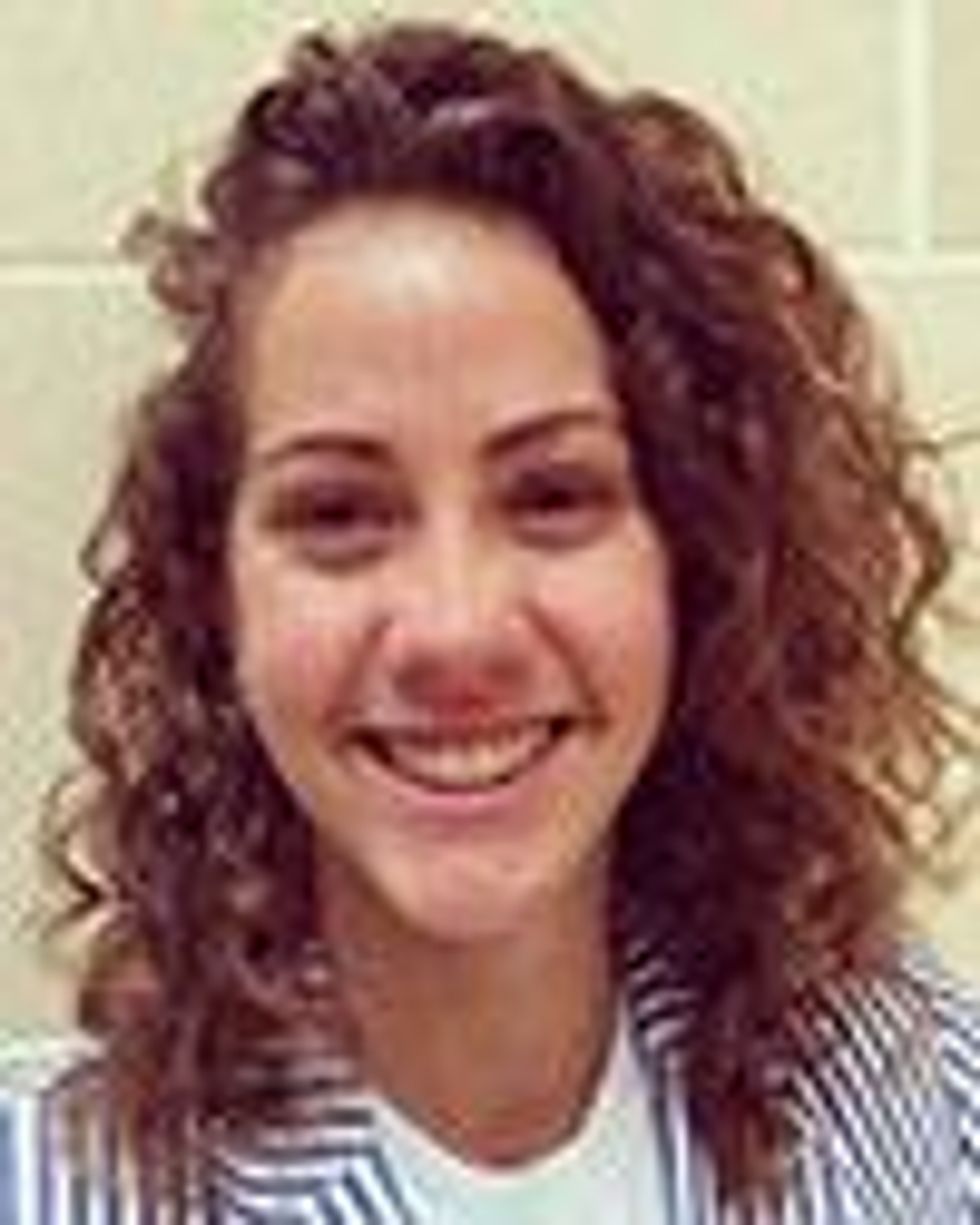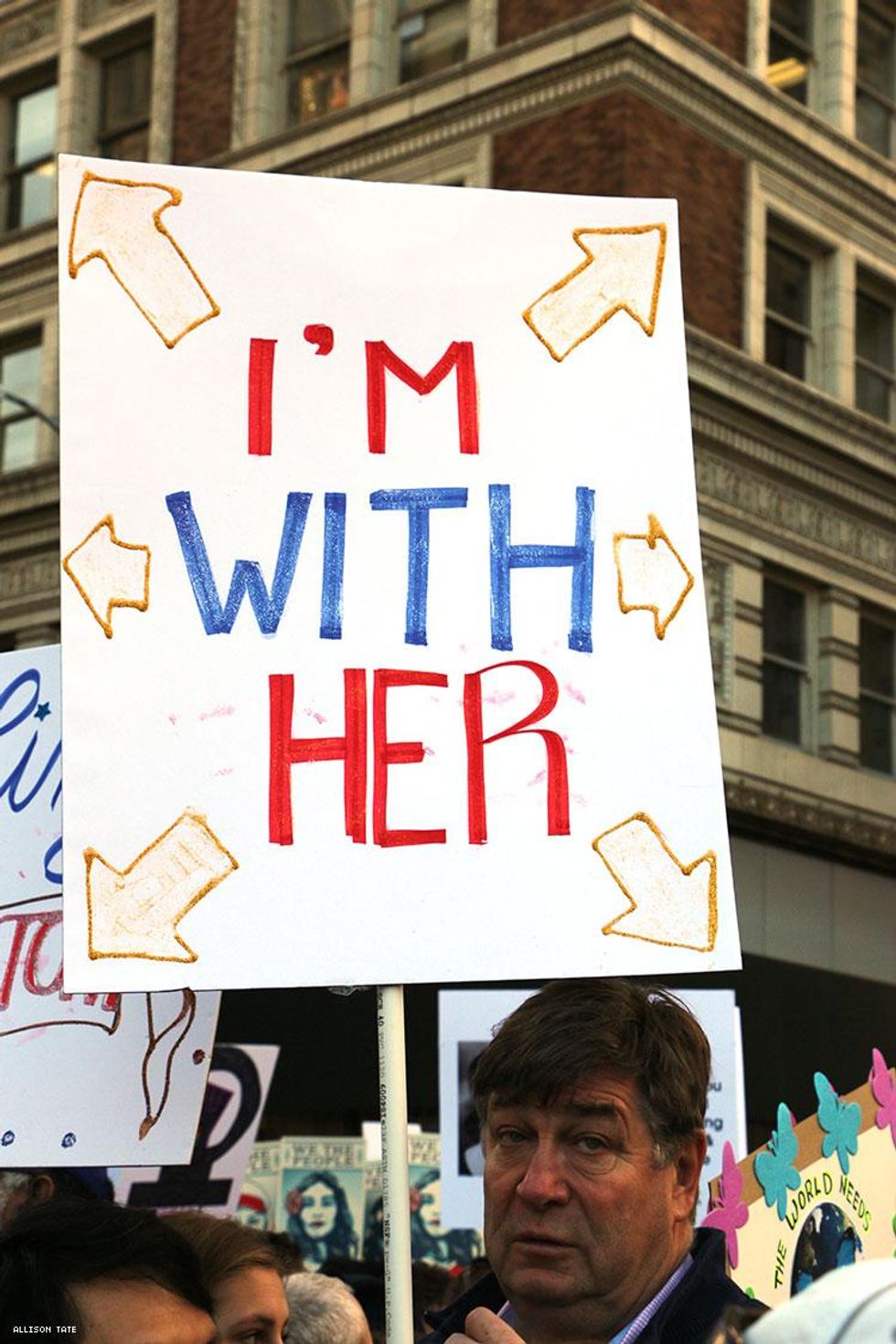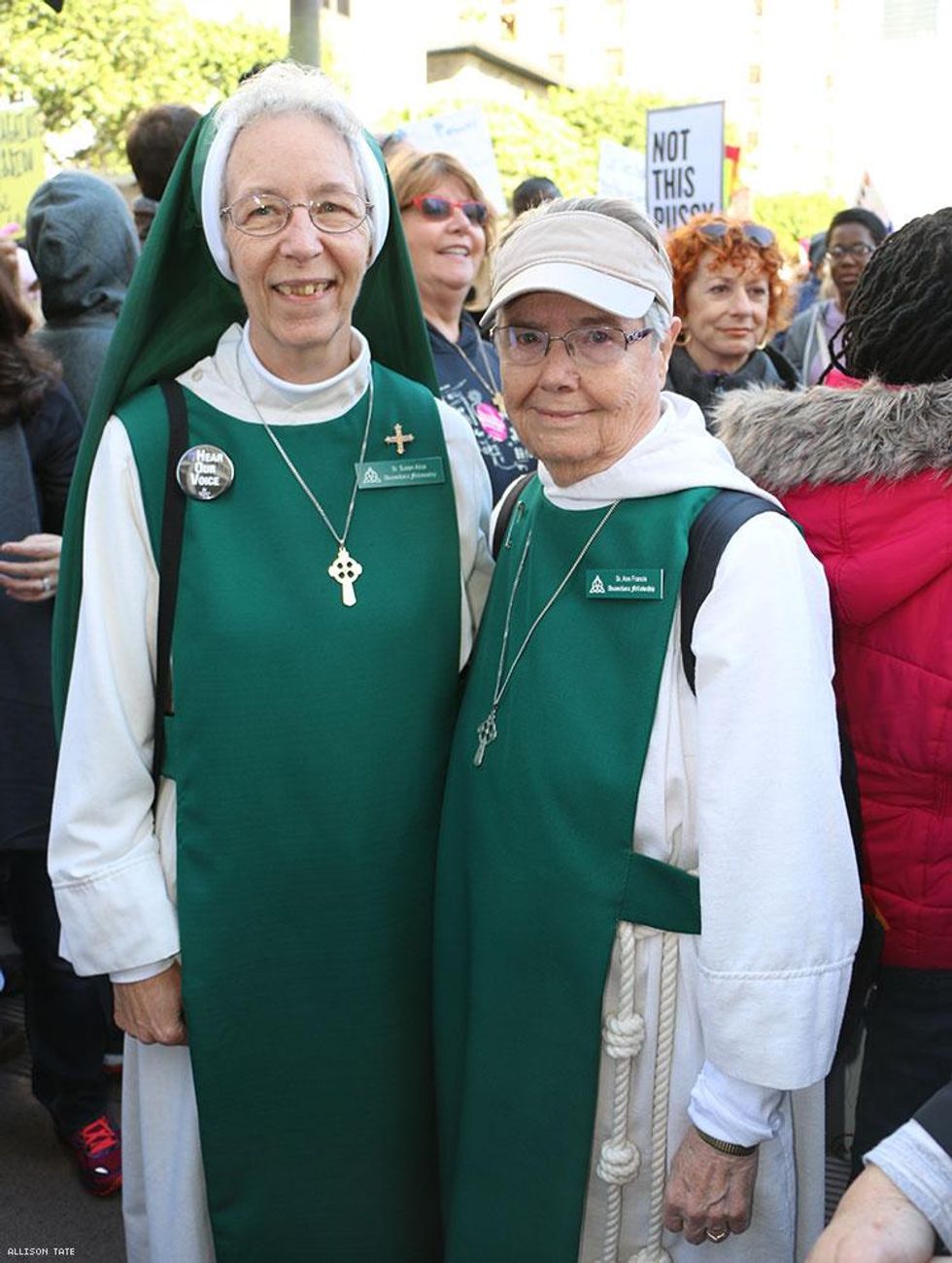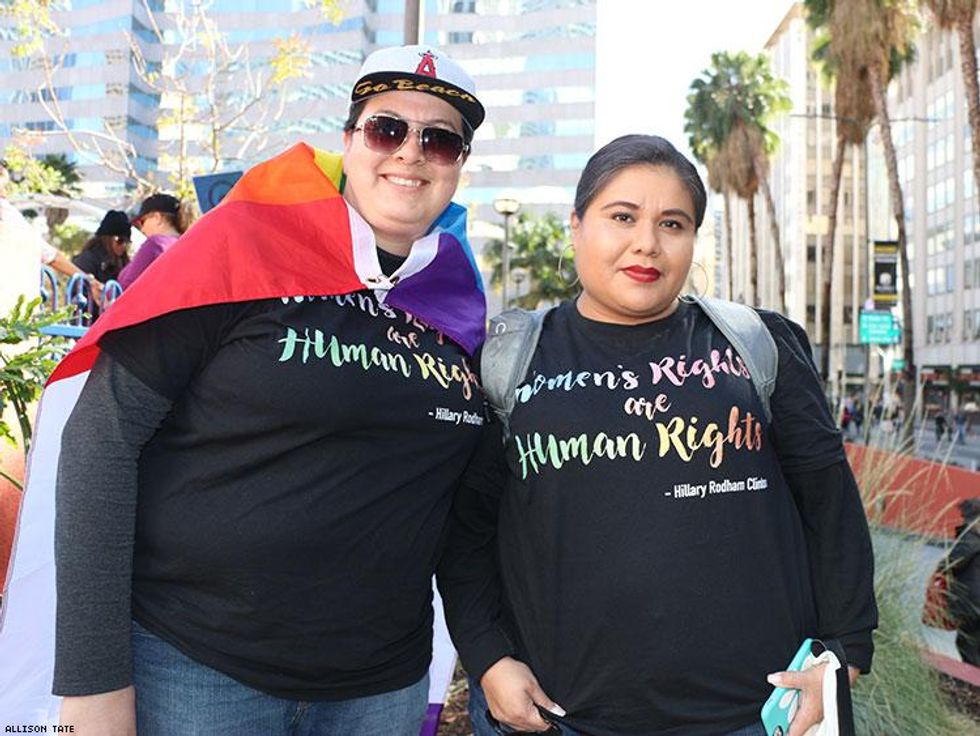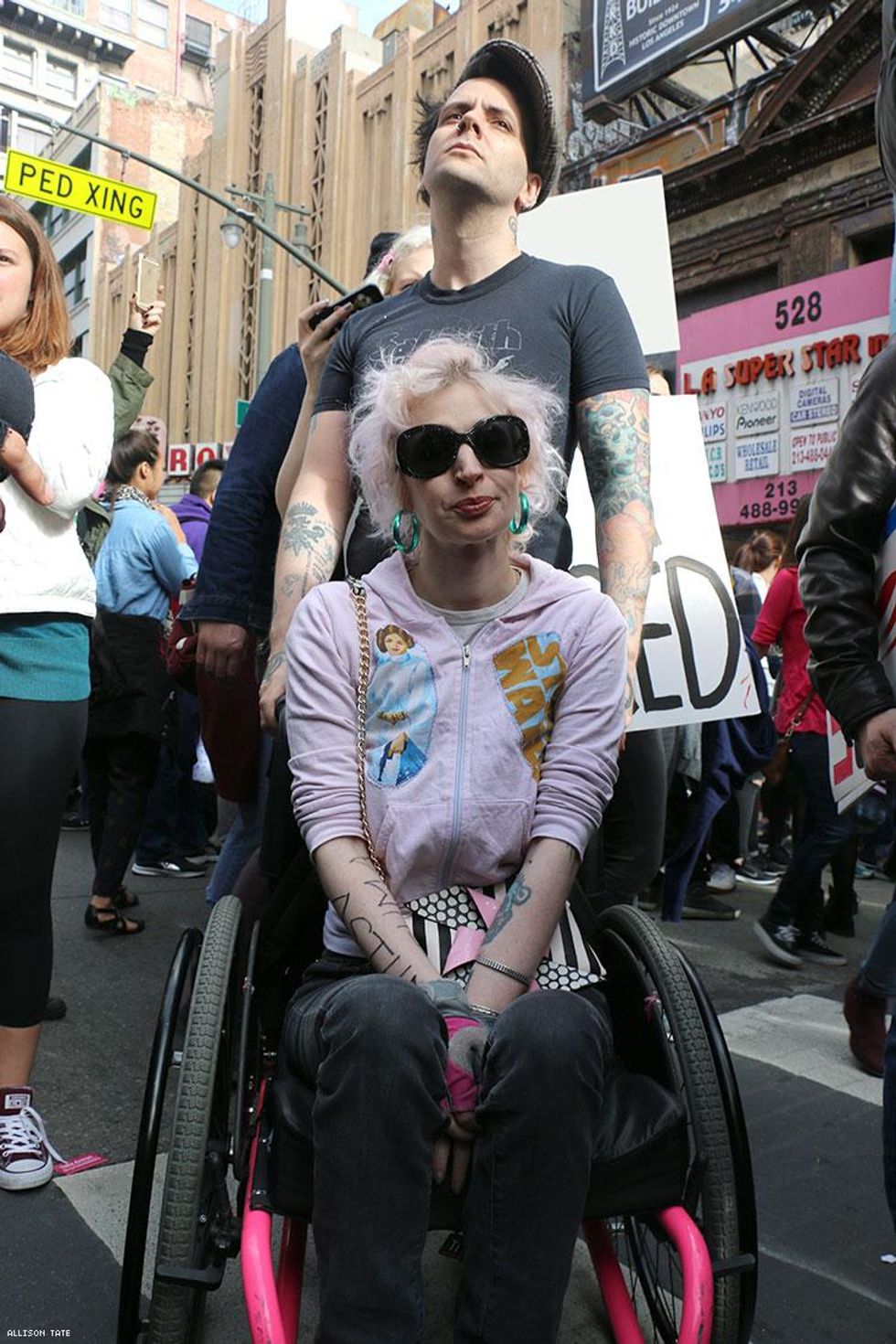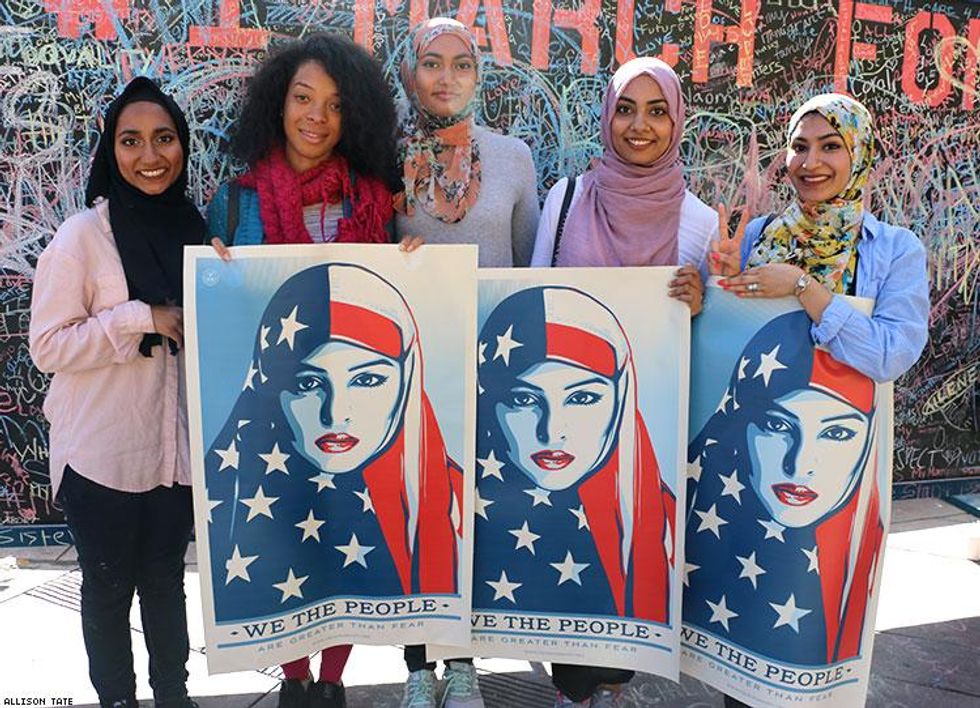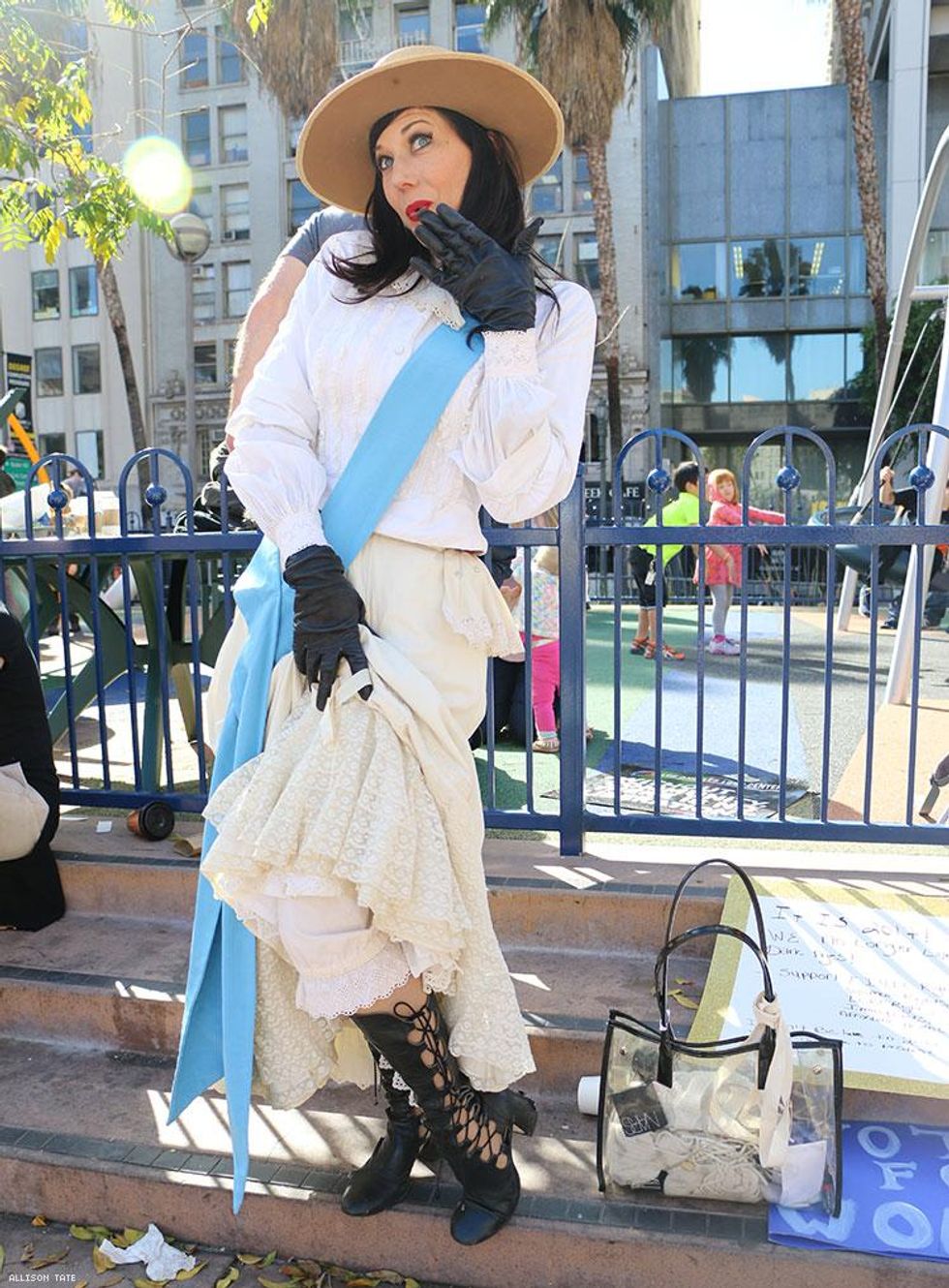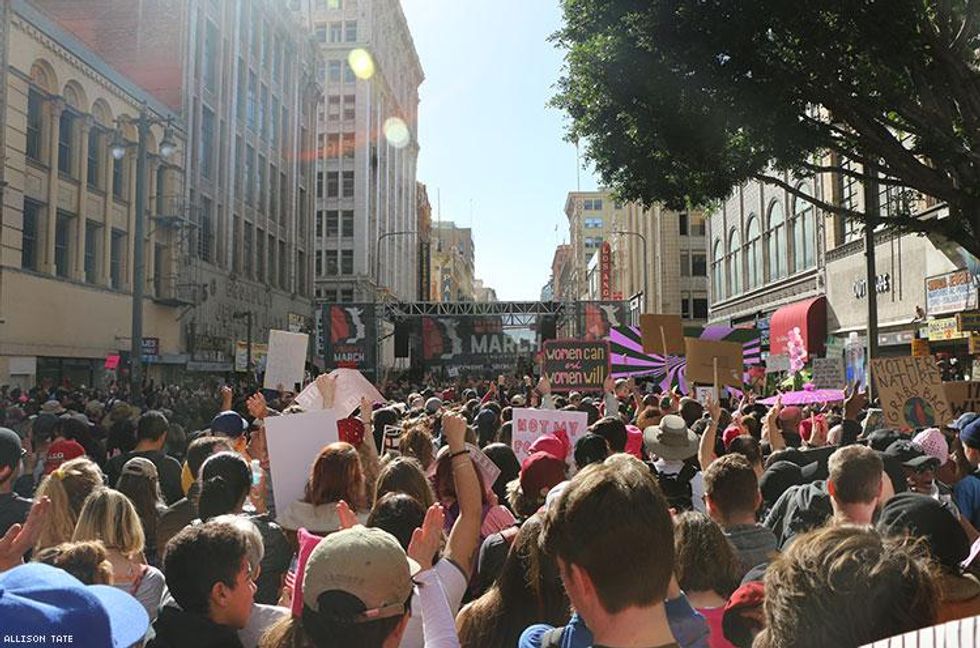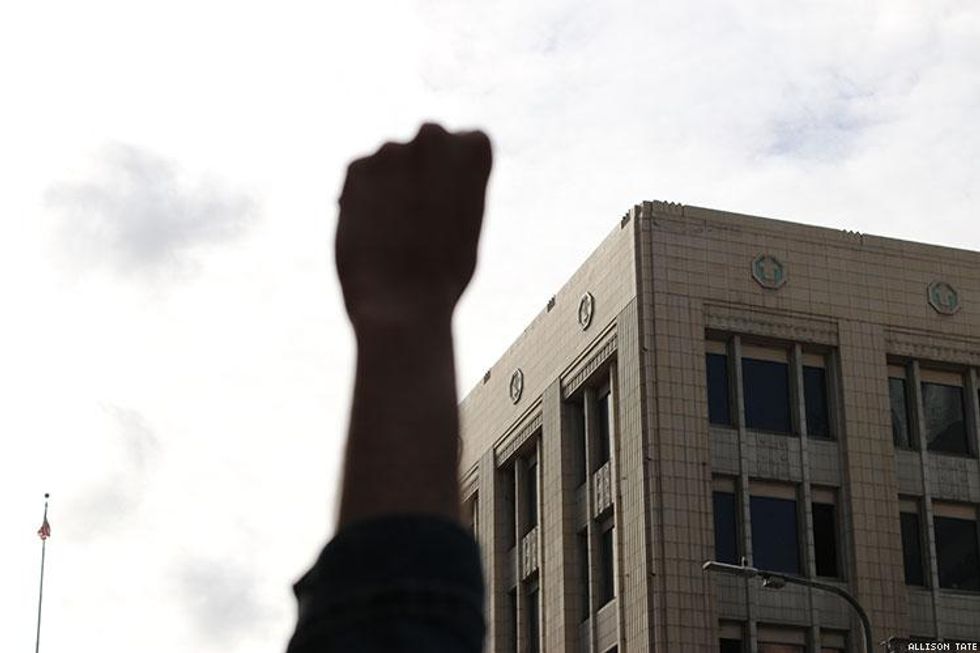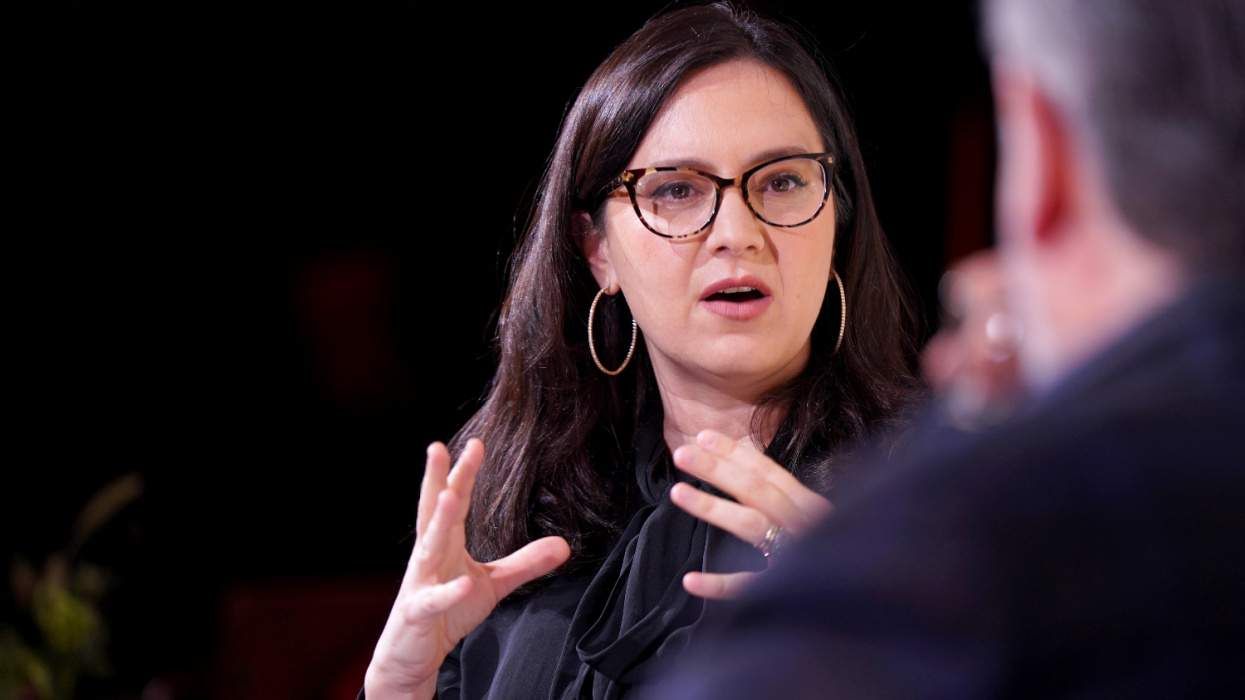On Friday I sat at my desk producing videos of Donald Trump's inauguration and crying. I blew my nose on the Trump-faced toilet paper a friend from Orlando had given me. I hadn't cried at work since the Pulse shooting. Covering both experiences was exceedingly painful, but this had a magnitude I had never experienced and a scope I couldn't fathom. I felt microscopic.
This is the worst day ever, I thought. "This is the worst day ever," I wrote in my journal before bed. My evening journaling routine is usually therapeutic, but not that night.
On the way to the Los Angeles Women's March the next day my dad said, "Have fun, even though it will be a waste of time."
Don't get me wrong; he supports me as a queer woman always and showed his solidarity by braving the downtown traffic to drop me off near Pershing Square. But he was asking what specifically the "point" was. And I didn't have an answer for him.
As I waded into the gridlocked humanity, I was still thinking about that question.
Then I heard a hiss. I froze. It was coming from down the block. It barreled toward me with the speed of a flash flood. The cheer became a roar beyond anything I had every felt. My bones shook, and a chill ran down my spine. It engulfed me like a tidal wave; but not drowning, lifting. Lifting spirits, hearts, voices that felt silenced for too long.
It gave me chills then and and still give them now. Hundreds of thousands screaming in simultaneous solitude. Except me.
I was pretty quiet most of the day, actually. I was working. Tasked to take photos and film interviews for The Advocate, I did a lot of asking and listening rather than screaming and shouting.
I met Vietnam veterans, nuns, Muslims, suffragettes, three generations of Latinx activists, black queer folks, trans people, female artists of color, mothers, daughters, women of size in love, and people marching in their wheelchairs. I asked them why they were marching. I listened to their answers.
I learned that each and every person was so much more than any of those labels. So much more than any demographic I could ever try to fit them into. And because they were all speaking of supporting multiple causes -- women's rights, LGBT rights, immigrant rights, Black Lives Matter, and more -- they all seemed to melt and multiply as I listened.
I asked a group of young Muslim women what they had to say to someone who might be Islamophobic. Zareen Rahman almost teared up, "This is something I think about always. We're just people," she said. Her friend Mahnoor Ahmad added, "We like Nutella, just like you."
I asked a woman dressed as a suffragette why she was marching. She took a twirl, I complimented her petticoat, and then she answered, "I'll be damned if I'm going to let this guy set us back 300 years. We already did this once!"
After I cut my camera she shared that her daughter had come out. She asked if I had any advice to her as a parent. Without hesitating, I said, "Ask for her story." She almost cried and said, "When I was pregnant I read all the books, and I've been reading a lot of articles recently, but I can see how one could do all that and never ask. Thank you."
How often do we read articles from a distance and assume things about others? How often do we ask for their story?
RELATED: Why We Marched (Video)
Once I was at the stage on Broadway I couldn't ask any more questions. The area around the mic was packed, and and the crowd was dense. I didn't have the vantage point to take many photos. And I had no service to live-tweet the speeches of Barbra Streisand, Lily Tomlin, Jane Fonda, Debbie Allen, Jennifer Grey, Natalie Portman, and more.
I had to be still. Be present. Participate. Witness. Be seen.
That's when it hit me that I was a part of history. I was part of something of immense magnitude and undeniable power.
It wasn't abstract. It didn't exist solely in my social circles or on the internet. It existed in everyone. All around me. As far as the eye could see. And it was bigger than the fear and helplessness I had felt less than 24 hours ago. Much bigger.
That was the "point."
One of my heroes who spoke on that stage, GLAAD's Sarah Kate Ellis, put it marvelously: "When we relinquish our power to be visible we allow the people who would rather not see us make us insignificant and small. Don't let them erase us. I know what it's like to be invisible. It's very hard. It can be a radical act to be visible." That's when I screamed.
Jane Fonda said, "Not everyone who voted for him is a homophobe and a bigot. We need to listen to their very real pain and offer an alternative." That's when I cried.
Oh, the humanity.
The Women's March was therapeutic on a macro scale. It was a global scream of catharsis. It was full of sound and fury signifying everything. It proved that the majority of America and the world is in The Resistance.
The Women's March was therapeutic on a micro scale. An intimate one. This weekend I lived through the beginning of a global revolution and a personal revolution. I will not hold back.
As the days march on, I hope we continue to turn out for the joy, the solidarity, the color, the roar of all marches to come. But the marches will signify nothing if we don't continue to make the micro-revolutions in our lives. We must practice conquering those self-censoring tyrants in our heads and hearts in order to take on the tyrants of the world.
The march might not have culminated in a law being passed or a bill being stopped, but it built so much more. It culminated in the incalculable, intangible empowerment of countless people. Those empowered people turned out in very real numbers.
I thought there had been 400,000 people in downtown L.A., but when my dad picked me up he told me it was 750,000; the world's largest. I told him about the people I met; about the suffragette mother. I told him how I advised her to ask for her daughter's story. As I was saying that, I realized I had never really told my parents mine. He asked to hear it. It was my turn to answer.
